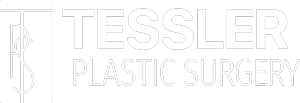Once you have done your homework and decided on the cosmetic procedure you want to have, the next step is to schedule a consultation with a qualified plastic surgeon. This initial consultation visit gives you an opportunity to ask important questions and convey your aesthetic concerns. You also get to learn more about the surgeon’s approach and style, discuss treatment options, and assess whether you can have a rapport with them before you make a commitment. This blog post highlights 6 key questions that you should ask during this one-on-one visit.
1. Are you board certified?
Any licensed physician is allowed to perform a cosmetic procedure in the United States. That’s why it is very important to make sure that you only work with professionals who are either certified by the American Board of Plastic Surgery (ABPS) or the American Board of Cosmetic Surgery (ABCS). These are professional organizations that train surgeons and ensure that they adhere to the highest standards of safety and professionalism before certifying them. So, the first question to ask when you visit a plastic surgeon is whether they are certified. If so, you want to know which organization issued the credentials, and what areas they specialize in.
2. How much experience do you have in the procedure I want?
Not all plastic surgeons are the same. Different practitioners may specialize in varied procedures. This is why it is important to figure out what areas a plastic surgeon is seasoned in. For instance, if you are looking to have breast enlargement surgery, you want to work with a plastic surgeon who has performed dozens or even hundreds of such successful procedures. This way, there’s a higher likelihood that they have worked with all sorts of patients and have mastered the hands-on skills needed to achieve the result you are looking for. Ask to look at before and after photos of past procedures to get an impression of what can be achieved.
3. What type of anesthesia will be used?
The type of anesthesia used will depend on the specific cosmetic surgery that is being performed. Ask your surgeon what will happen during the procedure so that you are mentally prepared. Local anesthesia is typically used during minor procedures and is easier to recover from. In the case of more invasive or complex surgeries, general anesthesia is used. This type of anesthetic is associated with certain undesirable side effects. Another thing to ensure is that the plastic surgeon works with a certified anesthesiologist and that the surgery is performed in an accredited facility where your safety is the priority.
4. What is recovery like?
Recovery is one of the most important concerns for patients who are planning to have plastic surgery. You want to understand what the process looks like so you can make plans ahead of time. Ask your surgeon what you can expect during recovery? How long does it take to get back to work? When will you be able to exercise and engage in strenuous activities? All these are questions that need to be answered. This way, you can arrange to take time off work and acquire supplies you’ll need during the surgery ahead of time. The idea is to be as relaxed and prepared as possible for recovery once you are discharged from the hospital.
5. How much will the procedure cost?
Cosmetic surgeries are typically considered to be elective in nature. This means they are not a medical necessity and thus health insurers do not pay for them. You’ll need to know how much the procedure costs so you can make arrangements ahead of time. In addition to the surgery fees, keep in mind that there are other costs included. These may include facility fees, anesthesiologist fees, cost of prescription medication, and recovery costs. Ask your plastic surgeon to give you a comprehensive estimate based on the specifics of your treatment. You’ll also want to know whether the surgeon offers in-house financing or partners with third-party medical credit providers that may help you break down the cost of your treatment.
6. What would happen if there are serious complications during the surgery?
Plastic surgeons have perfected their crafts and complications are not quite common. Still, it is important to ask this question to ensure that your safety will be a priority should anything go amiss. The surgeon should be able to explain what emergency steps should be taken if things don’t go according to plan. This can secure your peace of mind and alleviate some of the anxiety that is associated with the surgery.
Conclusion
Thoroughly doing your homework can go a long way when preparing for cosmetic surgery. Make sure that you ask these (and any other) questions that you have in mind. The surgeon should also clearly understand your concerns and expectations after the surgery. Go out there and learn as much as possible about the treatment, and get in touch with your surgeon if you need any clarification.

